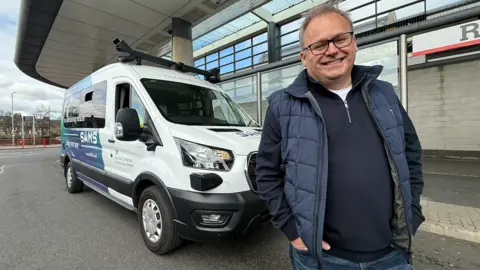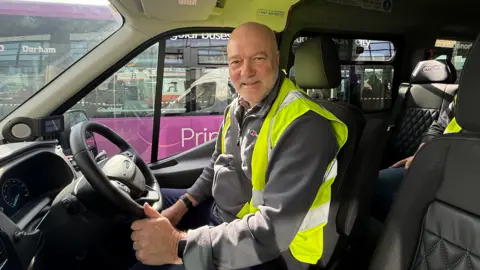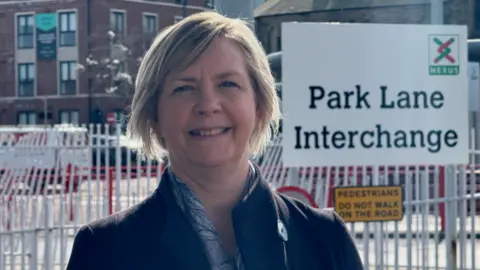Driverless bus trial to end 'human error' finishes
 BBC
BBCA multimillion-pound trial of a driverless bus to end "human error" has concluded after shuttling passengers in a city centre for a month.
An autonomous bus - staffed by a safety driver in case intervention was needed - had been ferrying members of the public between Park Lane and the Royal Hospital in Sunderland.
Passengers who had not yet been onboard told the BBC the prospect of completely driverless vehicles "frightened" them in case of accidents.
However, bosses behind the four-week project said feelings of nervousness ended once commuters had tried it.
The trial was a partnership between Sunderland Smart Cities and automated software firm Oxa.
It involved converting a Ford Transit van into a minibus with cameras, sensors, and software so it could complete pre-programmed journeys.
Due to UK regulations, a trained driver must sit behind the wheel to take control where necessary but if new laws are passed, driverless vehicles would not need to be staffed.

"They [the drivers] don't have the hands on the wheel but if they feel something is unsafe, they can take over," explains Richard Jinks, Oxa's chief operating officer.
"A high percentage of accidents are caused by human error and a lot of the way these vehicles work will remove that human error."
He also said that while waiting for new laws to be passed, the same technology could be used in areas which are not bound by current regulations including at airports to move baggage and in ports to transport industrial parts.
The BBC spoke to commuters on buses with conventional drivers at Sunderland's Park Lane Interchange.
One passenger said they "wouldn't feel safe" and "didn't trust them", while another said they "would be frightened if anything happened" without a driver onboard.

Liz St Louis, director of Smart Cities for Sunderland City Council, said "trepidation" among passengers was normal and she hoped that would change once they had travelled onboard.
"I think it's really important, clearly autonomous mobility is a huge future," she said.
"It's really advanced in many parts of the world, the UK is really catching up and we're proud in Sunderland testing autonomy on the public roads."
Unions have previously warned that, although a long way off, automation must come with "guarantees" to safeguard jobs.
Addressing concerns over the impact on jobs, Ms St Louis said there were likely to always be roles for "experienced drivers" which included remote operations.
Mr Jinks added: "We need to win hearts and minds in our industry, and we know that and that's what we're doing here."
About £4.9m has been invested in the project, which is researching how self-driving buses work in cities, with £2.7m of it being funded by the government.
